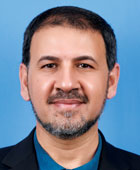Despair Is Not an Option
In these dark and divisive times, it’s easy to feel hopeless in the face of mass trauma and violence. However, giving up on hope is not the answer. As psychiatrists, we have a responsibility to promote healing on both individual and societal levels.
Healing from relational trauma, especially in the context of armed conflicts, requires patience, intention, and a focus on shared humanity. By turning anger into productive action and refusing to succumb to hate, we can begin to break toxic cycles.
As we center the crisis in the Middle East, we need to find ways to work within our capacity and start healing our communities. In other words, think globally and act locally. Given the current hostile geopolitical environment, people from diverse cultural and religious backgrounds share that they do not feel safe and fear for the safety of their families and their community. If we, in the safety of the United States, cannot look each other in the eye and sit at the same table to resolve our conflicts locally, how can we expect people in the Middle East, under much worse circumstances, to reach any kind of a lasting peace? When neighbors refuse to see their neighbor’s humanity or instead see them as an enemy, how can one find compassion?
To heal, one’s story needs to be heard and validated. Trauma is isolating, and being denied the opportunity to make meaning from suffering compounds the pain. Creating safe spaces for people to share their experiences and be met with empathy and understanding is crucial. In the words of Dr. Sam Himelstein of the Center for Adolescent Studies in Oakland, Calif., we heal relational trauma when we are “other-oriented, aware of our own blind spots, when we step outside our conditioned ego, commit to self-reflection and self-critique, when we work on fixing power imbalances, develop partnerships with marginalized groups and individuals, and when we advocate for system-level changes.”
We must also recognize that hatred is learned and can be unlearned. All religions recognize the sanctity of human life, despite the existence of religious hostility. By focusing on human connection and actively searching for common ground, we open the door to compassion.
As psychiatrists, we can model constructive dialogue across differences and hold space for diverse narratives. Caring encounters, on both a personal and social level, can break cycles of trauma and promote resilience. We have an ethical duty to foster these interactions. Imagine people both here and in the Middle East sharing caring, rather than hurtful, encounters.
Healing is a communal affair. As single-track stories are dangerous, by listening to each other’s stories, we can build toward the four foundations of healing: regaining safety, establishing human connection, pursuing justice, and searching for beauty.
As humans, we have the capacity to harm or heal each other. We also have the capacity to soothe pain and bring to safety our fellow humans who have been hurt, buried under layers of trauma.
As psychiatrists, by leveraging our capacity for compassion and understanding, even in the face of great challenges, we can help create a society in which all individuals are seen, soothed, and supported. Instead of surrendering to despair and division, we can choose hope and let that hope drive us forward in the hard but necessary work of healing. ■




